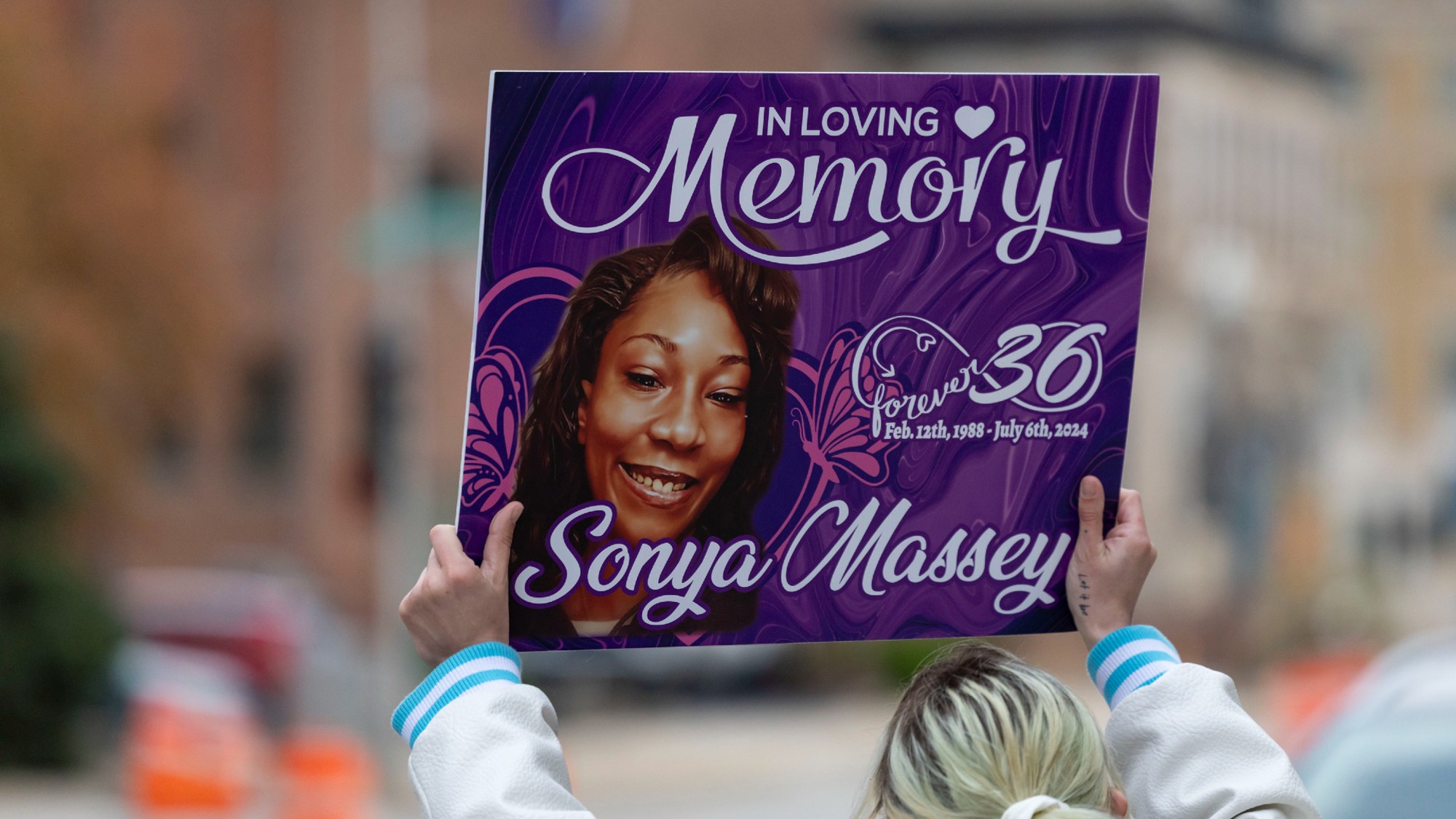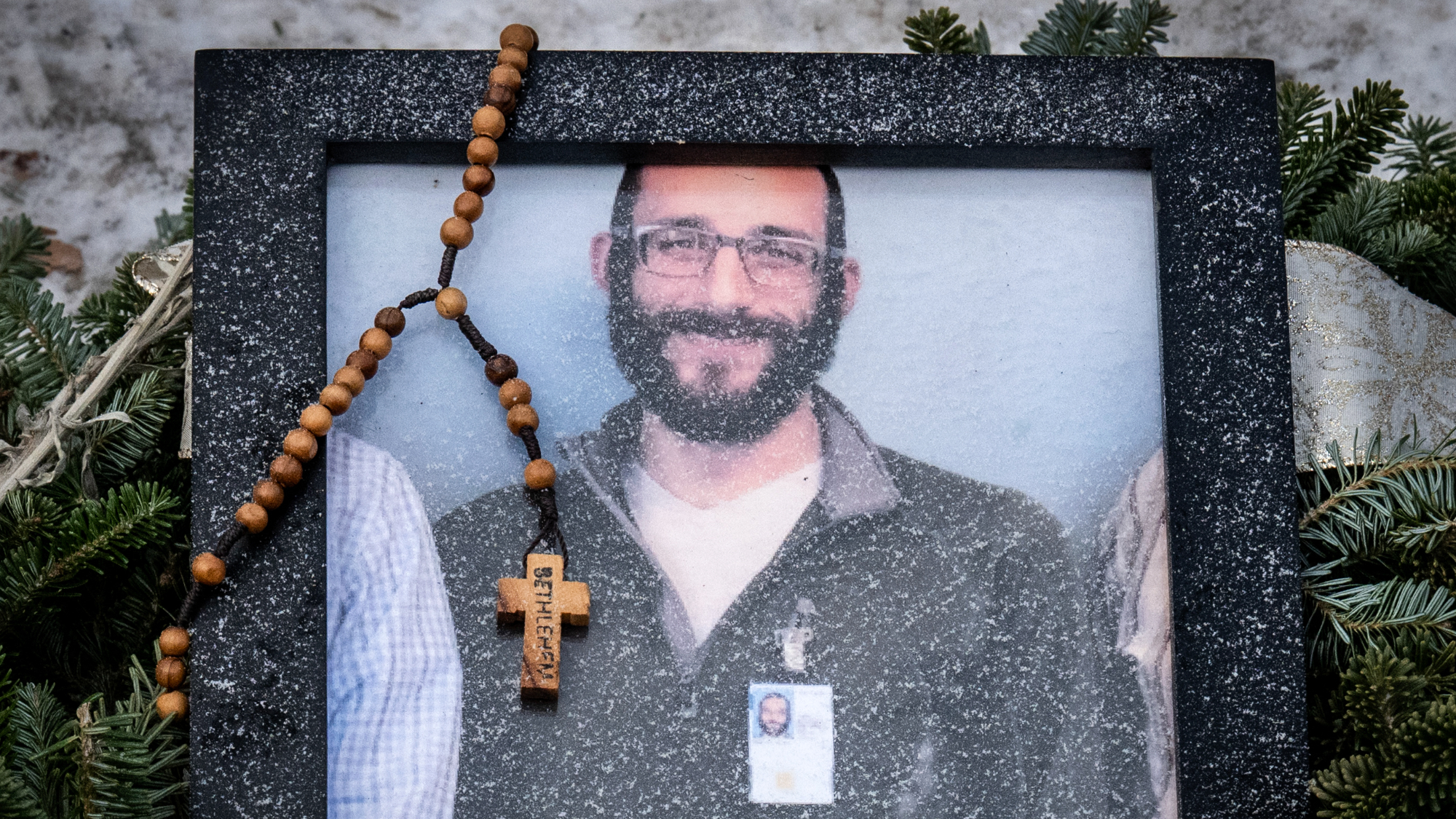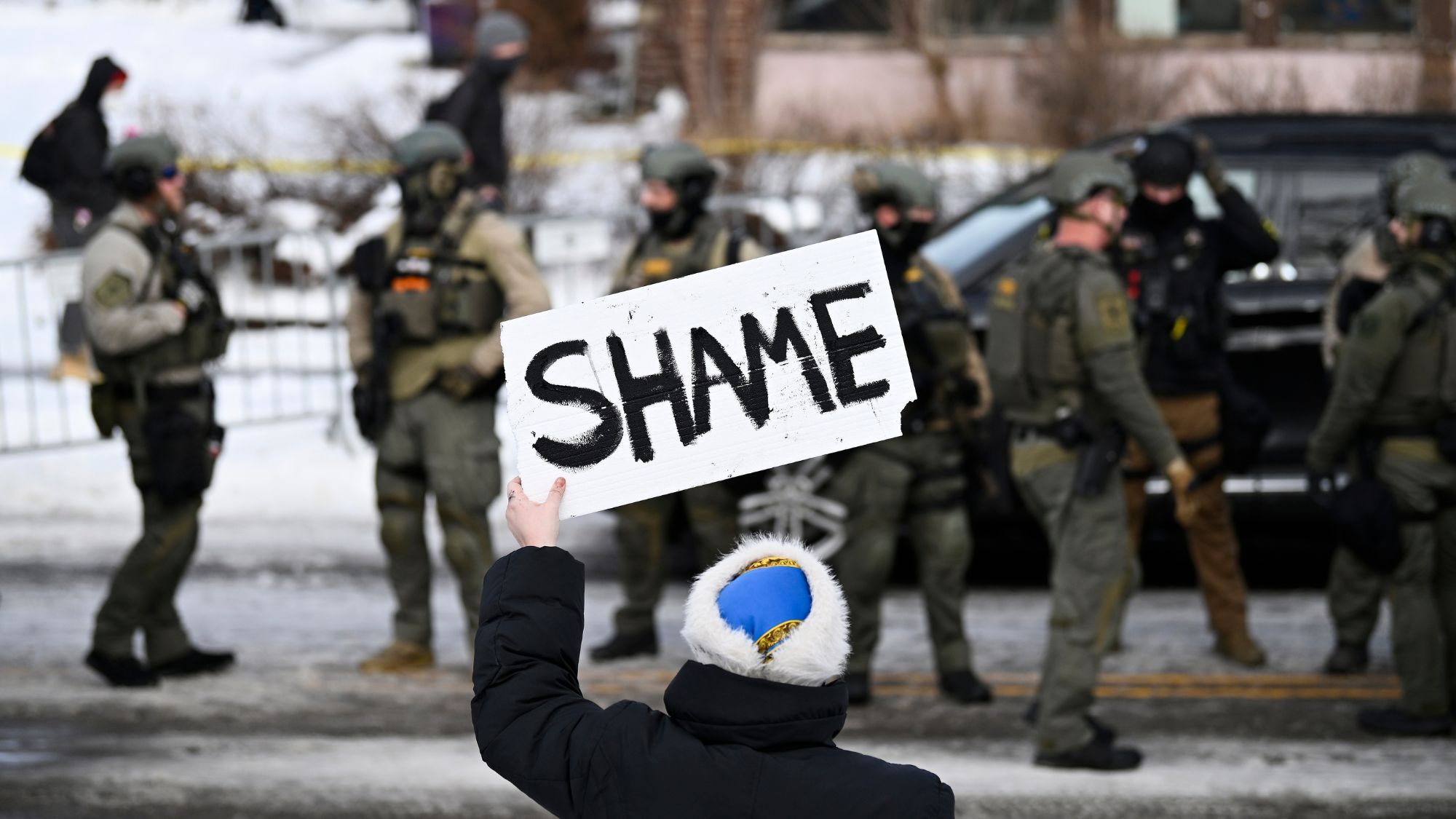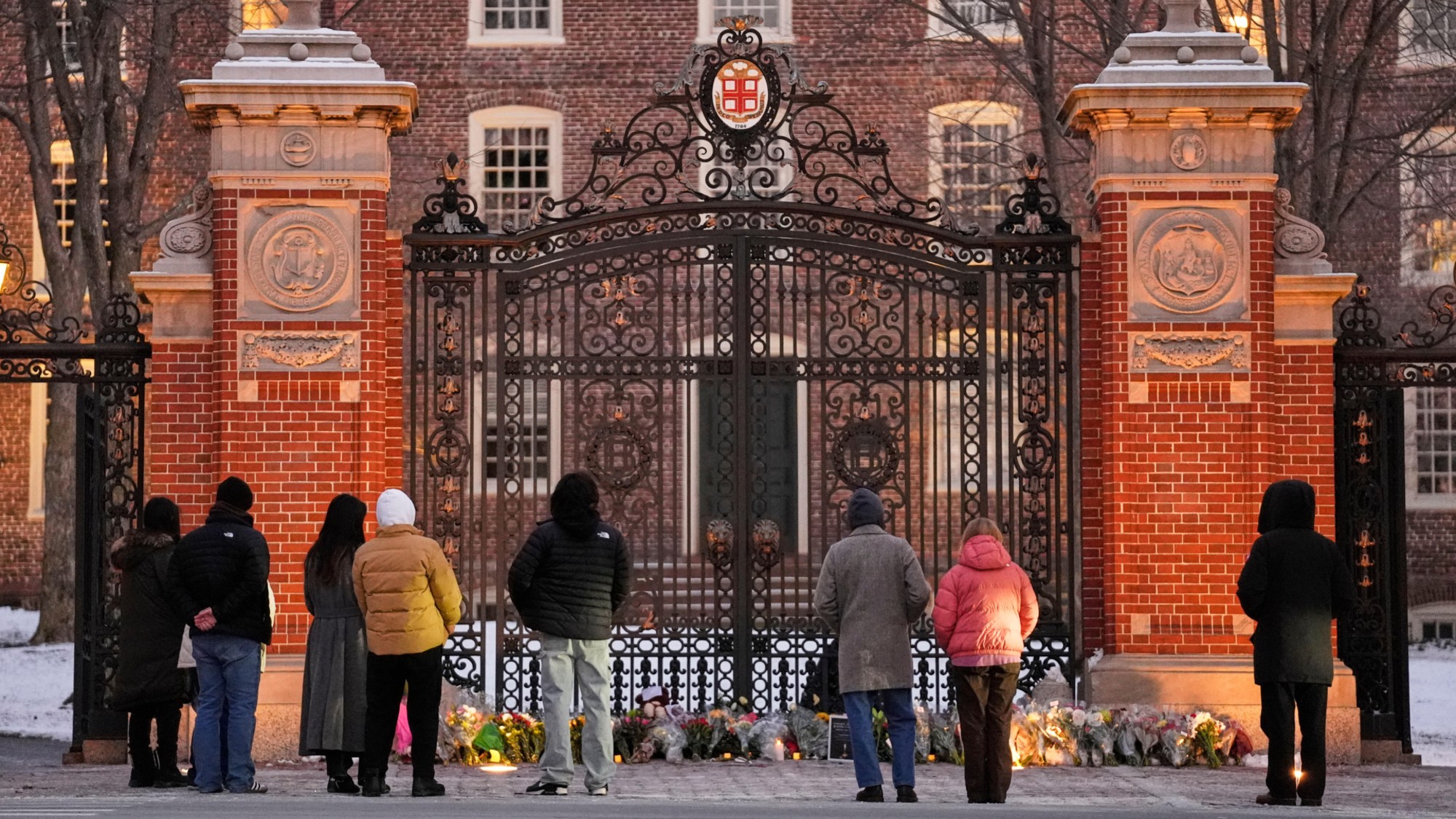Can the UK's knife crime 'epidemic' be tamed?
Fatal stabbings are on the rise but campaigners are divided over punitive threats vs. public health interventions

A free daily email with the biggest news stories of the day – and the best features from TheWeek.com
You are now subscribed
Your newsletter sign-up was successful
As Labour and the Conservatives get into election mode, their pledges and ideas to tackle knife crime are under increasing scrutiny.
There is some debate over whether recent knife crime statistics amount to an upward trend, or a return to business as usual after a significant drop during the pandemic. There were nearly 49,000 crimes in England and Wales involving knives or sharp objects during the year ending September 2023, according to newly published Home Office statistics – an increase of 5% year on year.
But that is still 5% lower than the year ending March 2020, before the start of the pandemic, noted the BBC.
The Week
Escape your echo chamber. Get the facts behind the news, plus analysis from multiple perspectives.

Sign up for The Week's Free Newsletters
From our morning news briefing to a weekly Good News Newsletter, get the best of The Week delivered directly to your inbox.
From our morning news briefing to a weekly Good News Newsletter, get the best of The Week delivered directly to your inbox.
Keir Starmer has promised to "get a grip" on the issue, and has set out Labour proposals to "give each knife crime offender a bespoke plan to tackle their reoffending", said The Times, as part of "wider plans for a more interventionist approach to violent crime".
Rishi Sunak, meanwhile, is proposing amendments to the Criminal Justice Bill that would increase the maximum penalty for making, selling or possessing banned weapons from six months to two years.
What did the commentators say?
Knife crime in London has "leapt by more than a fifth in the last year", said the London Evening Standard. And in rural areas, offences of knife possession have doubled in the past decade, compared with a 60% rise in urban police force areas, according to Labour analysis of Office for National Statistics (ONS) data.
Labour has said that "every young person caught with a knife will face a sanction such as jail, tagging, curfew, fine or behavioural contracts", said The Telegraph.
A free daily email with the biggest news stories of the day – and the best features from TheWeek.com
The Tories are already trying to clamp down on the sale and possession of so-called "zombie-style" knives and machetes. This is "the government's third attempt at banning the weapons", said the BBC, after a legal loophole was found last year.
The mother of Grace O'Malley-Kumar, who was stabbed and killed in Nottingham last year, has called for mandatory prison sentences for carrying a knife. The "lethal weapon" is "no different" to carrying a gun, Dr Sinead O'Malley told the broadcaster.
But Hollywood actor and prominent knife crime campaigner Idris Elba has argued against a "one size fits all" approach. Elba pointed out that, although deterrents were an important consideration, some people – usually young men – carry knives out of fear. "We do not want to criminalise these people without offering them an opportunity to feel safe, to feel that their whole community is involved," Elba told BBC "Breakfast".
It's true that "a small quiet fearfulness is eroding public spaces", said Sarah Ditum in The Sunday Times, and that rising non-fatal attacks such as muggings and robberies are causing more boys to carry weapons because they feel "unsafe". This is "also about status", she said, and "carrying a weapon is a way for a boy to make himself look big". What's needed "is a serious approach to the problems faced by boys, and serious study of why some fall into nihilistic criminality and others – despite suffering all the same afflictions of poverty and background – don't."
"Few will disagree with Elba's practical solution" of urging the government to speed up the ban on machetes and zombie knives, said Sebastian Milbank in The Spectator. The idea that social workers can "sort out the majority of criminal behaviour" is "invariably presented as a panacea", but successful examples of "public health" and community approaches to violence are "anything but non-punitive", Milbank continued.
"Steering offenders away from violence can work, but it takes the real threat of prison, confronting the effects of their actions, and effective policing to get people to make better choices when offered an alternative to crime."
What next?
Elba and his fellow campaigners "have to overcome many stumbling blocks in their path if they want to see progress", said Milbank – "from a dysfunctional Met to a flailing government to a prim liberal establishment that wishes the problem would go away".
Ultimately, said Ditum, "it's futile to argue about whether stop and search could be effective when there's no reason to believe the police have the resources or the public support to enact it".
Knife crime, she said, is emblematic of "the desolation of the country's social fabric: the diminishment of policing, the failures of justice, the collapse of the contract between families and schools".
Harriet Marsden is a senior staff writer and podcast panellist for The Week, covering world news and writing the weekly Global Digest newsletter. Before joining the site in 2023, she was a freelance journalist for seven years, working for The Guardian, The Times and The Independent among others, and regularly appearing on radio shows. In 2021, she was awarded the “journalist-at-large” fellowship by the Local Trust charity, and spent a year travelling independently to some of England’s most deprived areas to write about community activism. She has a master’s in international journalism from City University, and has also worked in Bolivia, Colombia and Spain.
-
 House votes to end Trump’s Canada tariffs
House votes to end Trump’s Canada tariffsSpeed Read Six Republicans joined with Democrats to repeal the president’s tariffs
-
 Bondi, Democrats clash over Epstein in hearing
Bondi, Democrats clash over Epstein in hearingSpeed Read Attorney General Pam Bondi ignored survivors of convicted sex offender Jeffrey Epstein and demanded that Democrats apologize to Trump
-
 Are Big Tech firms the new tobacco companies?
Are Big Tech firms the new tobacco companies?Today’s Big Question Trial will determine if Meta, YouTube designed addictive products
-
 Ex-Illinois deputy gets 20 years for Massey murder
Ex-Illinois deputy gets 20 years for Massey murderSpeed Read Sean Grayson was sentenced for the 2024 killing of Sonya Massey
-
 Why have homicide rates reportedly plummeted in the last year?
Why have homicide rates reportedly plummeted in the last year?Today’s Big Question There could be more to the story than politics
-
 Demands for accountability mount in Alex Pretti killing
Demands for accountability mount in Alex Pretti killingSpeed Read Pretti was shot numerous times by an ICE agent in Minneapolis
-
 FBI bars Minnesota from ICE killing investigation
FBI bars Minnesota from ICE killing investigationSpeed Read The FBI had initially agreed to work with local officials
-
 ICE kills woman during Minneapolis protest
ICE kills woman during Minneapolis protestSpeed Read The 37-year-old woman appeared to be driving away when she was shot
-
 Campus security is under scrutiny again after the Brown shooting
Campus security is under scrutiny again after the Brown shootingTalking Points Questions surround a federal law called the Clery Act
-
 How the Bondi massacre unfolded
How the Bondi massacre unfoldedIn Depth Deadly terrorist attack during Hanukkah celebration in Sydney prompts review of Australia’s gun control laws and reckoning over global rise in antisemitism
-
 Executions are on the rise in the US after years of decline
Executions are on the rise in the US after years of declineThe Explainer This year has brought the highest number of executions in a decade